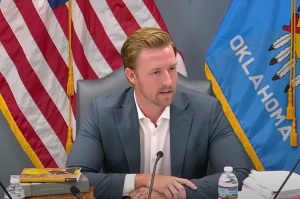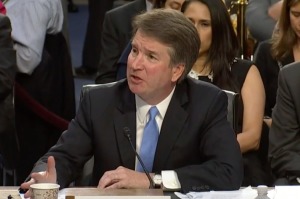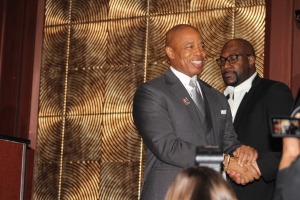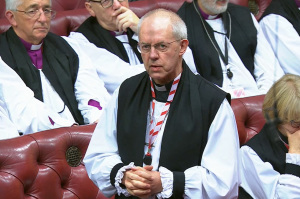Christians in Malaysia Accept Ruling on Church Raid
Sultan rules insufficient evidence to prosecute Christians for evangelizing.
KUALA LUMPUR, Malaysia – Following controversy over a raid on a church event in which Muslims were present, Christian leaders in Malaysia welcomed a sultan’s pronouncement that neither the Christians nor the state officers who disrupted the meeting would be prosecuted.
A number of local commentators, however, have continued to express concern over the Aug. 3 raid by the officers of the Selangor Islamic Religious Department (JAIS).
The sultan of the state of Selangor, Sharafuddin Idris Shah, issued a statement on Oct. 11 saying the Muslim religious officers did not breach any state laws in the raid on Damansara Utama Methodist Church (DUMC). The sultan came to the conclusion after considering a report prepared by JAIS.
While church leaders welcomed the sultan’s wish for religious harmony and his decree that there will be no prosecution against any parties involved, Dr. Ng Kam Weng, research director at Kairos Research Centre, argued that the powers granted by the state enactments “cannot be taken as license” for Muslim religious authorities to intrude or trespass onto the premises of a church.
Furthermore, Ng said, enforcement must be consistent with fundamental civil liberties and provisions of the Criminal Procedure Code (Act 593) relating to search and arrest. In Malaysia, two sets of laws exist – civil laws that govern all citizens, and Islamic laws that apply to Muslims only in matters of religion, family, property and inheritance.
In the raid, between 20 to 30 JAIS officers and police entered the Dream Centre, a facility rented by DUMC, without a search warrant at 10 p.m. Christians were holding a dinner in gratitude for the efforts of Harapan Komuniti (HK), a community-based Non-Governmental Organization that aids women and children and victims of HIV/AIDS and natural disasters. Present at the dinner were volunteers, leaders, supporters and members of the community who have benefitted from the HK’s work.
Upon entering the premises, JAIS religious officers took videos and photographs. When the dinner organizers asked JAIS officers for the reason for their raid, they said they had received a complaint but were unable to produce a copy when asked for one. The Muslim religious officers also took down details of the Muslim guests before leaving, and the 12 were later asked to give statements at the JAIS office.
The sultan’s ruling asserted that, based on investigations by JAIS, there were attempts made to “subvert the faith and belief of Muslims,” though there was insufficient evidence for legal action to be taken against the perpetrators.
In a country where propagating one’s faith to Muslims is prohibited, Bishop Paul Tan Chee Ing questioned the accusation that the church meeting was used to steer Muslims from their religion, as the sultan ruled there was insufficient evidence to prosecute the Christians.
“If there is not enough evidence, there ought to be no imputation of wrongdoing,” the Roman Catholic bishop said.
The sultan commanded JAIS to provide counseling to the 12 Muslims present at the dinner in order to restore their faith and belief in Islam. He also expressed hope that all activities to spread other religions to Muslims in the state should cease immediately.
In Malaysia, the sultan is the head of Islamic affairs in all states where the sultans rule. According to local laws, evangelization of Muslims is an offense punishable by fine and/or imprisonment. Muslims who try to convert out of Islam are also subjected to all kinds of hardships, including having to attend rehabilitation camps.
In his ruling, the sultan claimed that the actions by the Muslim religious officers came within the jurisdiction of the Syariah Criminal Procedure (State of Selangor) Enactment, 2003, Syariah Criminal (State of Selangor) Enactment, 1995 and Selangor Non-Islamic Religions (Control of Propagation Amongst Muslims) Enactment, 1988.
Following the church raid and allegations of Christian evangelization of Muslims, some Muslim groups have tried to fan religious tensions. Several right-wing Malay/Muslim groups, including the Pertubuhan Pribumi Perkasa Malaysia (Organization of Strong Indigenous People Malaysia), organized a rally on Oct. 22 at the 100,000-seat Shah Alam Stadium to fight the challenge of Christianization in Malaysia. Only 5,000 people, however, turned up.
More moderate Muslim groups such as the Islamic Renaissance Front have called on Muslims not to blame others but to examine the root causes of apostasy and to consider their own shortcomings.
The church raid incident represents yet another challenge to the local Christian community, which in recent years has had to defend its right to use the word “Allah” in Christian worship and literature as well as protect its right to print and import Malay Bibles and religious literature.
This concern was expressed by Bishop Ng Moon Hing, chairman of the Christian Federation of Malaysia, which represents most Christians in the country.
“We have witnessed an increase in incidences where Christians have been singled out and targeted with unjustified accusations and prejudice from various groups, as well as [from] certain mainline media,” he said in an Aug. 4 statement.
Ng questioned the legality of the raid, describing the Muslim religious officers’ actions as “high-handed and repugnant” and “an affront to the values of mutual respect and harmony.”
The Christian community, which makes up 9.2 percent of Malaysia’s total population of 28.3 million people, expressed alarm and concern over the church raid. The day after the incident, Daniel Ho, senior pastor of DUMC, issued a statement expressing disappointment at the Muslim religious officers’ trespass and actions and at subjecting the dinner guests “to undue harassment.”
In another statement on Aug. 12, Ho clarified his church’s stand on community work.
“In all our community work, we seek to practice our faith and to serve the community … regardless of creed, race or religion,” he stated. “As always, DUMC … seeks to help the poor and the needy with no conditions attached.”





























